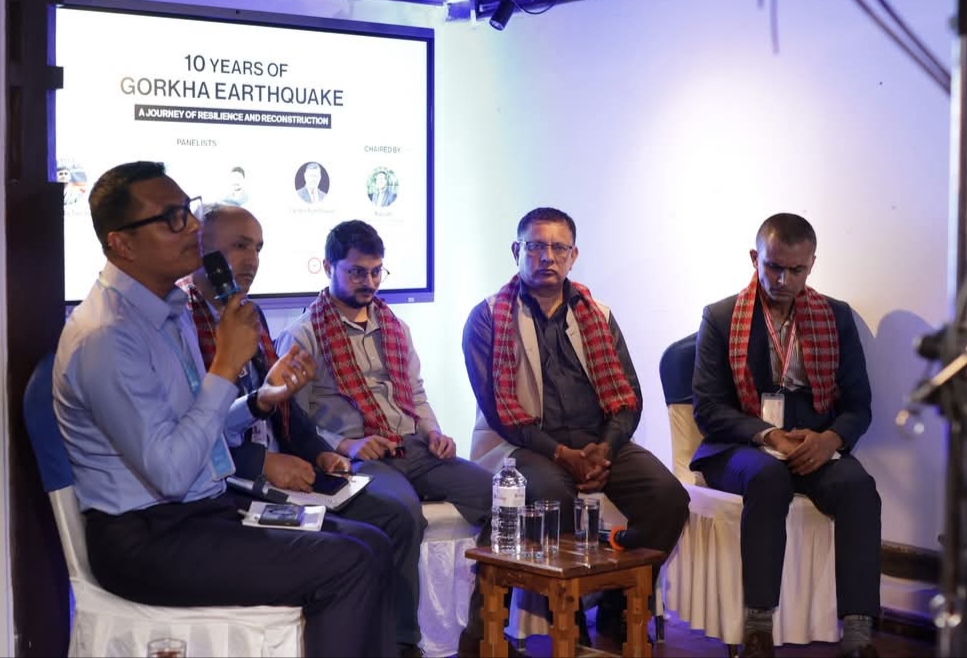Kathmandu, Nepal – Habitat for Humanity Nepal recently hosted a panel discussion titled "10 Years Since Nepal Earthquake 2015: Learning from the Past, Building for the Future," bringing together experts from ministries, academia, the Shelter Cluster, and youth representatives to evaluate Nepal’s journey since the devastating 2015 earthquake.
The discussion highlighted significant progress while also shedding light on the challenges that persist in making Nepal’s housing sector safer and more resilient.
Progress and Innovations
Nepal has advanced in areas such as building codes and sustainable housing research. Efforts to integrate innovations, like the use of bamboo in construction, offer promising solutions for sustainable housing. However, the effective implementation of these innovations at the community level remains a major challenge.
Barriers to Safer Housing
Despite progress, barriers such as a lack of skilled workers, limited public awareness, and inadequate retrofitting efforts hinder Nepal’s resilience. Experts emphasized the need for education and incentives to encourage retrofitting and safer construction practices, particularly in vulnerable communities.
Youth and Traditional Knowledge: Key Drivers of Change
The discussion also highlighted the untapped potential of Nepal’s youth in driving climate action and disaster resilience. Panelists called for more opportunities and meaningful engagement for young people in these fields. Moreover, integrating traditional knowledge, such as bamboo construction, with modern housing practices was recognized as a sustainable path forward.
Global Leadership Through the Shelter Cluster Model
Nepal’s Shelter Cluster model, which evolved from distributing emergency kits to providing cash support and customized housing solutions, has gained global recognition. It now serves as an example for disaster recovery worldwide.
The Road Ahead
Panelists urged for deeper community involvement, youth empowerment, and robust local policies to ensure a safer and more resilient future. They stressed that while significant strides have been made in disaster resilience and housing, continued collaboration between research institutions, government bodies, and communities is essential to turning knowledge into action.
Panelists and Contributors
The event featured insights from key speakers, including Pradeep Khanal, Engineer at the Ministry of Urban Development; Manish Raj Timsina, Shelter Cluster Coordinator at the Nepal Red Cross Society; Dr. Hari Ram Parajuli, Associate Professor at the Institute of Engineering; and Diwakar Uprety, Founder of Kayapalat Nepal.
Their collective expertise and reflections underscored the importance of learning from past experiences and innovating for the future.
As Nepal marks a decade since the earthquake, the nation is reminded of the progress made and the urgent need for sustained action. The collective efforts of communities, institutions, and youth will be critical in building a safer and stronger Nepal.